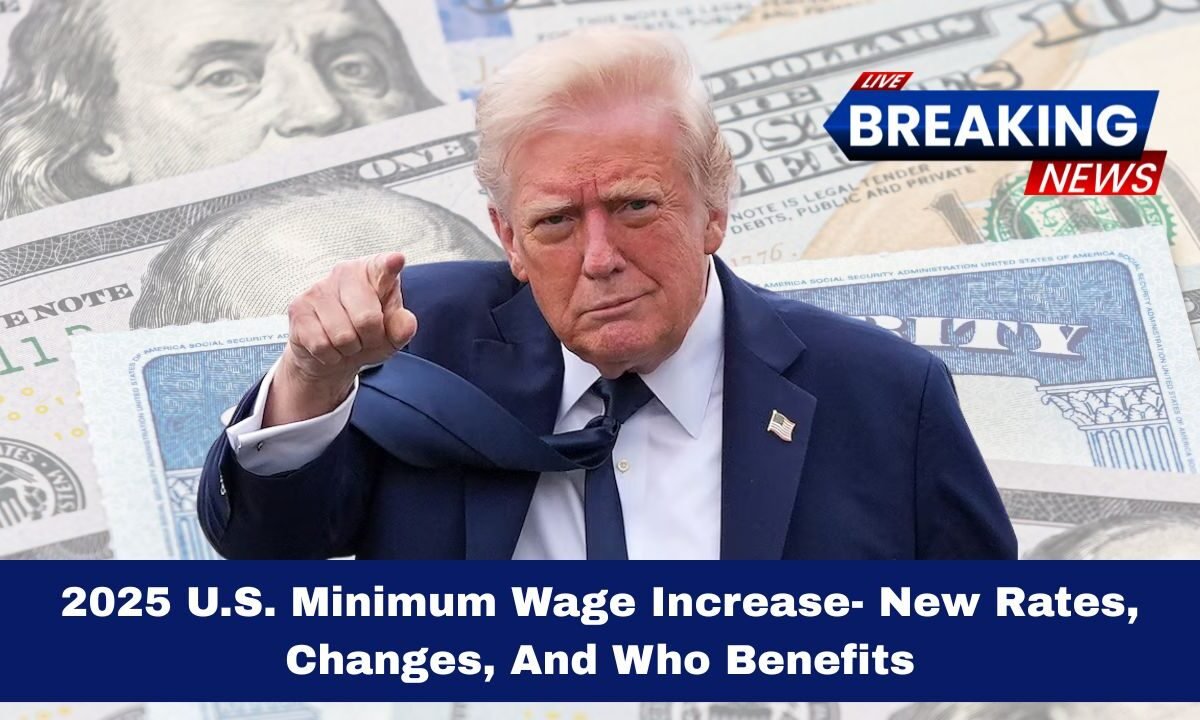In 2025, the federal minimum wage remains $7.25 per hour, unchanged since 2009. However, most of the wage action is happening at the state and local level.
Workers are generally entitled to the higher of federal or state/local rates, making state laws the key factor for wage protection.
Key 2025 Highlights
- 21 states increased their state minimum wage on January 1, 2025.
- Several states now have $15+ per hour statewide minimums.
- Some cities and regions pay above $16–$20 per hour, with local ordinances surpassing state rates.
New 2025 Minimum Wage Rates- Key Examples
The table below shows important 2025 minimum wage increases for non-tipped workers:
| State / Area | 2024 Rate (Approx.) | 2025 Minimum Wage | Effective Date | Notes |
|---|---|---|---|---|
| Federal baseline | $7.25 | $7.25 | — | Applies where state law is not higher |
| California | $16.00 | $16.50 | Jan 1, 2025 | Some cities higher: Mountain View $19.20, Cupertino $18.20 |
| Washington (state) | $16.28 | $16.66 | Jan 1, 2025 | Cities like Seattle exceed $20/hr ($20.76) |
| New York – NYC / Downstate | $16.00 | $16.50 | Jan 1, 2025 | Upstate NY is $15.50/hr |
| Nebraska | $12.00 | $13.50 | Jan 1, 2025 | On track to $15/hr in 2026 |
| South Dakota | $11.20 | $11.50 | Jan 1, 2025 | Indexed annually to inflation |
| Ohio | $10.45 | $10.70 | Jan 1, 2025 | Indexed to U.S. Consumer Price Index |
| Florida | $13.00 | $14.00 | Sept 30, 2025 | Step toward $15/hr by 2026 |
| District of Columbia | $17.50 | $17.95 | July 1, 2025 | Among the highest citywide rates |
Other states, including Arizona, Maine, Michigan, Minnesota, Missouri, Vermont, and Virginia, also implemented 2025 wage increases.
Who Benefits from 2025 Minimum Wage Increases?
The 2025 wage hikes primarily help:
- Low-wage workers in retail, hospitality, restaurants, health care support, and other service sectors.
- Women, young workers, and workers of color, who are overrepresented in minimum wage jobs.
- Employees in high-cost regions like California, Washington, New York City, and D.C., where higher wages offset living expenses.
Benefits include: improved job quality, reduced wage inequality, and better chances for workers to reach middle-class living standards, particularly when raises are phased in and inflation-indexed.
Tipped Workers and Special Groups
Many states still allow lower tipped minimum wages, provided tips bring total pay above standard rates. Examples for 2025:
- Vermont: Tipped wage $7.01/hr; regular workers $15.01/hr
- District of Columbia: Base wage for tipped workers $10/hr; employers must top up to meet $17.95 standard minimum
The Raise the Wage Act of 2025, if passed, would gradually eliminate subminimum wages for tipped, youth, and certain disabled workers.
Employer Responsibilities in 2025
Businesses must:
- Check both state and local wage rules, not just federal minimums.
- Update payroll systems, budgets, and job offers to reflect new rates.
- Review tipped worker policies, particularly in states with updated wages.
- Monitor city-specific ordinances where wage floors exceed $20/hr and adjust for annual cost-of-living changes.
The 2025 U.S. minimum wage landscape shows a static federal rate of $7.25 but rapidly increasing state and local wages.
Millions of workers are now earning $13–$17+ per hour, benefiting from improved pay and stronger protections against rising living costs.
For employers, these changes require careful compliance, but they also offer opportunities for lower turnover, higher morale, and more productive teams.
Staying informed about these changes is essential for workers and businesses alike.
FAQs
What is the federal minimum wage in 2025?
The federal minimum wage remains $7.25 per hour, unchanged since 2009. State or local minimums may be higher.
How many states increased their minimum wage in 2025?
21 states raised their minimum wage on January 1, 2025, with additional increases in cities and counties affecting over 9.2 million workers.
Which locations have the highest minimum wages in 2025?
Highest rates include Washington state ($16.66/hr), parts of California with city rates above $18–$19/hr, and Washington, D.C. ($17.95/hr).




